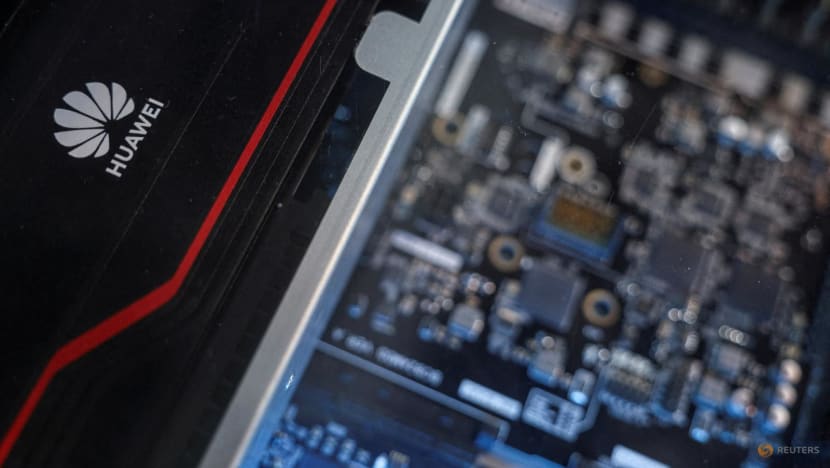US warns against use of Huawei Ascend AI chips 'anywhere', says it violates export controls

A Huawei Atlas 800 inference server is displayed at InnoEX Fair, in Hong Kong, China on Apr 15, 2025. (Photo: Reuters/Tyrone Siu)

This audio is generated by an AI tool.
SINGAPORE: The United States' Department of Commerce on Tuesday (May 13) issued new guidelines which state that the use of Huawei's Ascend AI chips "anywhere in the world" violates the country's export controls.
The department's Bureau of Industry and Security also warned of the "potential consequences" of allowing US AI chips to be used for training Chinese AI models.
The training process for AI models involves providing them with data to learn patterns, while inference is when the trained models apply that knowledge to new data and make predictions or generate outputs.
US companies will be guided how to protect supply chains against diversion tactics in a bid to strengthen export controls for overseas AI chips, the bureau said.
These actions "ensure that the United States will remain at the forefront of AI innovation and maintain global AI dominance", it added.
Huawei's Ascend 910B is viewed as the most advanced AI chip available from a Chinese company. But sources said in October last year that China-based chip designer Sophgo had ordered chips from TSMC that matched the one found on Huawei's Ascend 910B, prompting the suspension of shipments.
In April, Nvidia said it would take US$5.5 billion in charges after the US government limited exports of its H20 artificial intelligence chip to China, a key market for one of its most popular chips.
The US, however, rescinded further export controls on Tuesday on advanced computing semiconductors, answering calls by countries that said they were being shut out from crucial technology needed to develop artificial intelligence.
The so-called "AI diffusion rule", set to take effect on Wednesday, was part of a series of actions taken by then-President Joe Biden just before leaving office in January that sought to make it harder for Beijing to access advanced technology.
The rule divided the world's countries into three tiers, with each tier having its own level of restrictions.
Top tier countries, like Japan and South Korea, would have continued to face no export restrictions, while Tier 2 regions, which included countries like Mexico and Portugal, would have seen a cap on the amount of chips they could receive.
Some US lawmakers feared the cap would have incentivised countries to go to China for AI chips, spurring the superpower's development of state-of-the-art technology.
Chipmakers, including Nvidia and AMD, lobbied against the tiered restrictions and saw their share prices rise last week when the Trump administration indicated it would rethink the rule.
The AI Diffusion Rule would have undermined US diplomatic relations with dozens of countries by downgrading them to second-tier status, the US Commerce Department said.
Washington has expanded its efforts in recent years to curb exports of state-of-the-art chips to China, concerned that these can be used to advance Beijing's military systems and otherwise undermine American dominance in AI.
"The Trump Administration will pursue a bold, inclusive strategy to share American AI technology with trusted foreign countries around the world, while keeping the technology out of the hands of our adversaries," said Under Secretary of Commerce for Industry and Security Jeffrey Kessler.
Kessler criticised the previous administration's approach, adding: "We reject the Biden administration's attempt to impose its own ill-conceived and counterproductive AI policies on the American people."
Biden's proposed rule aimed to avert any circumvention of chip supply to China from other countries.
The US Commerce Department said the rule would have damaged American innovation and diplomatic relations with numerous countries that would have been "downgraded to second-tier status".














